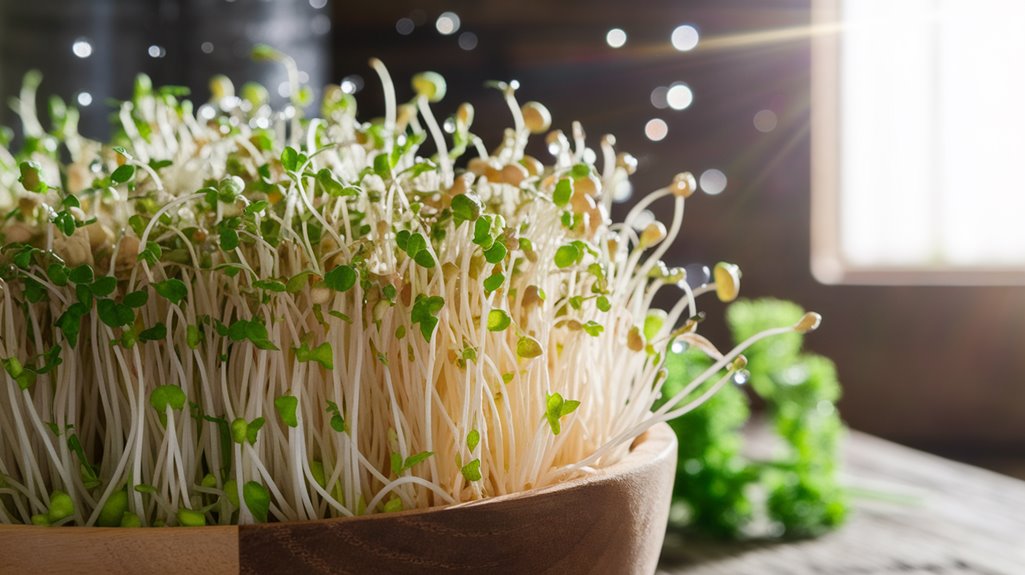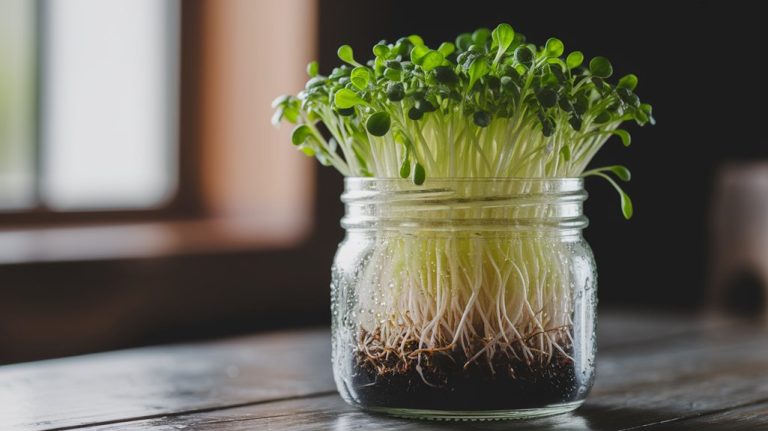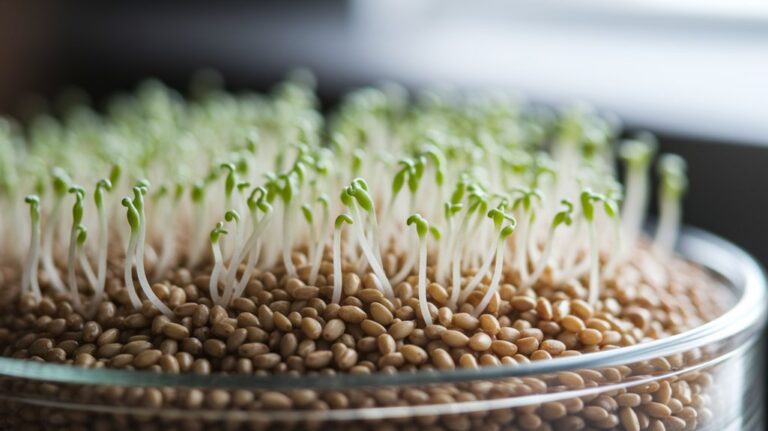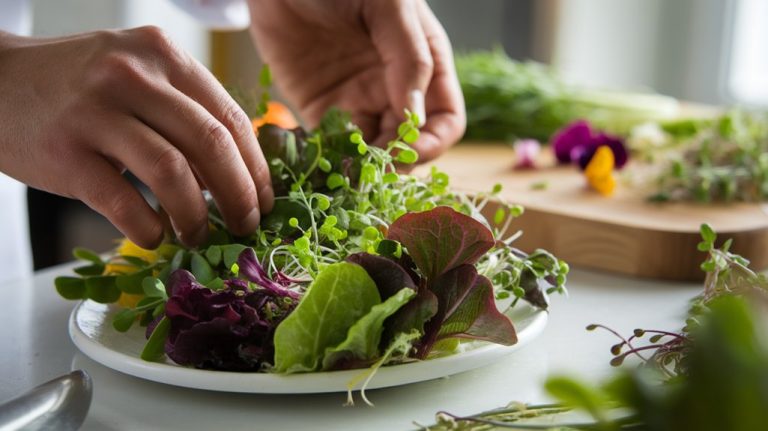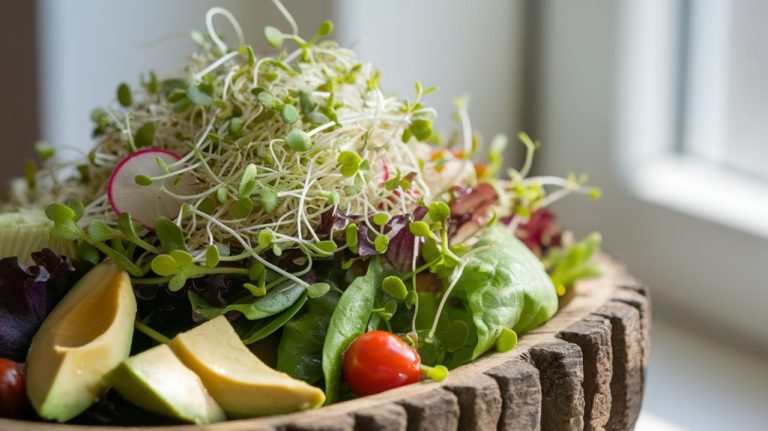Nutritional Value and Benefits of Sprouts
I’ve found that sprouts are highly nutritious, packing vitamins, minerals, and antioxidants like sulforaphane in broccoli sprouts and protein in mung bean sprouts. They support immune function, aid digestion, and help maintain a healthy weight thanks to their high fiber content. However, it’s important to be cautious about potential foodborne illnesses, especially for vulnerable populations. If you’re curious to explore various types of sprouts, their growing methods, and their creative uses in meals, there’s much more to uncover.
Key Takeaways
- Sprouts are rich in essential nutrients, vitamins, and minerals, making them a valuable addition to a balanced diet.
- They support immune function, reduce inflammation, and promote overall health due to their high antioxidant content.
- The high fiber content in sprouts aids digestion and helps maintain a healthy weight.
- Different types of sprouts offer unique health benefits, such as iron from lentils and sulforaphane from broccoli.
- Incorporating sprouts into meals enhances nutrition without adding significant calories, making them ideal for weight management.
Types of Sprouts and Their Nutritional Profiles
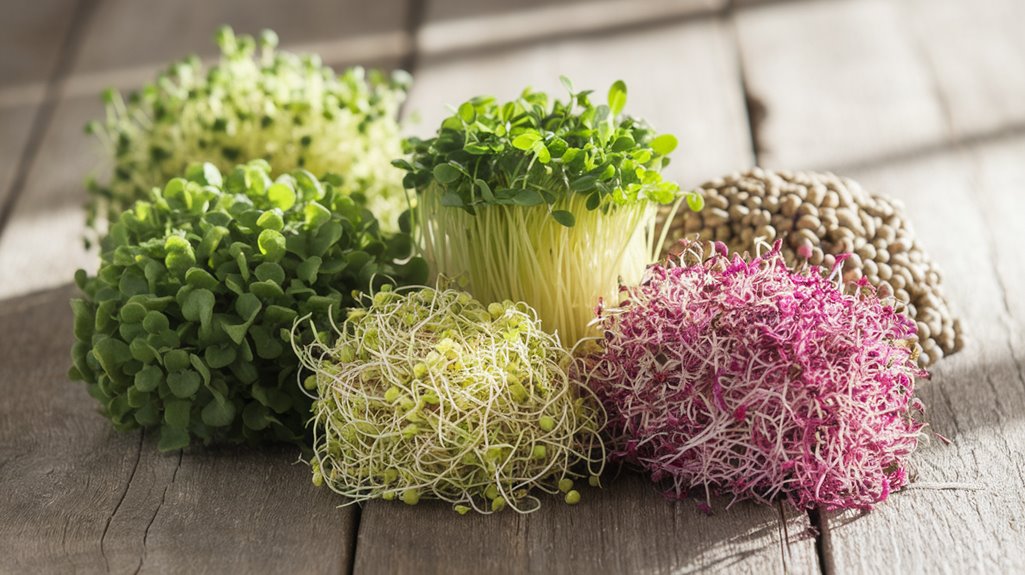
When it comes to sprouts, there are several types, each boasting unique nutritional profiles that can enhance our diets.
For instance, alfalfa sprouts are low in calories yet high in vitamins A, C, and K, making them excellent for skin health.
On the other hand, broccoli sprouts stand out for their high sulforaphane content, which has antioxidant properties.
Mung bean sprouts offer a good source of protein and fiber, promoting digestive health.
Meanwhile, radish sprouts contain compounds that may support heart health.
Lastly, lentil sprouts are rich in iron and folate, essential for energy and cell function.
Health Benefits of Incorporating Sprouts Into Your Diet
Incorporating sprouts into your diet can significantly enhance your overall health, as they’re packed with essential nutrients and health-promoting compounds.
These tiny powerhouses are rich in vitamins, minerals, and antioxidants, which support immune function and reduce inflammation. Studies show that the high fiber content in sprouts aids digestion and helps maintain a healthy weight.
Additionally, their low calorie and high nutrient density make them an excellent choice for anyone looking to improve their diet. I’ve found that including different types of sprouts, like alfalfa or broccoli, can provide unique benefits due to their specific nutrient profiles.
How to Grow Your Own Sprouts at Home
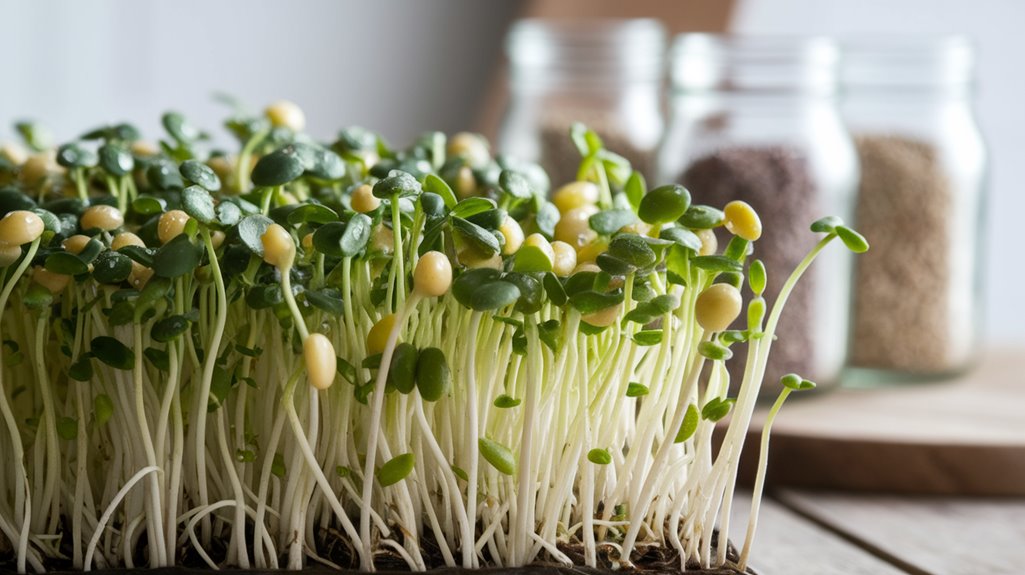
Growing your own sprouts at home is a rewarding way to enjoy their nutritional benefits while also having control over the growing process. To start, you’ll need seeds—like alfalfa, mung beans, or broccoli—along with a jar or a sprouting tray.
Rinse the seeds thoroughly and soak them in water for several hours. After draining, place them in your jar or tray, ensuring good airflow. Rinse and drain the seeds twice daily for about 3-7 days, depending on the type.
Keep them in a warm, dark place until they sprout. Once they reach your desired size, rinse them one last time, and enjoy! This method not only provides fresh sprouts but also allows you to explore different varieties in your diet.
Creative Ways to Include Sprouts in Your Meals
Although many people enjoy sprouts for their health benefits, I find that their versatility in the kitchen truly enhances meals. Adding sprouts to salads instantly boosts nutrition, providing crunch and flavor.
I often toss them into stir-fries, where their delicate texture complements sautéed vegetables beautifully. For breakfast, I like to incorporate sprouts into my omelets or avocado toast, adding a fresh, zesty kick.
Blending sprouts into smoothies is another fantastic option, as they blend well without overpowering the flavor. I’ve also experimented with using sprouts as a topping for sandwiches and wraps, adding a delightful crunch.
These creative uses not only enhance the taste but also significantly increase the meal’s vitamin and mineral content.
Potential Risks and Considerations When Eating Sprouts
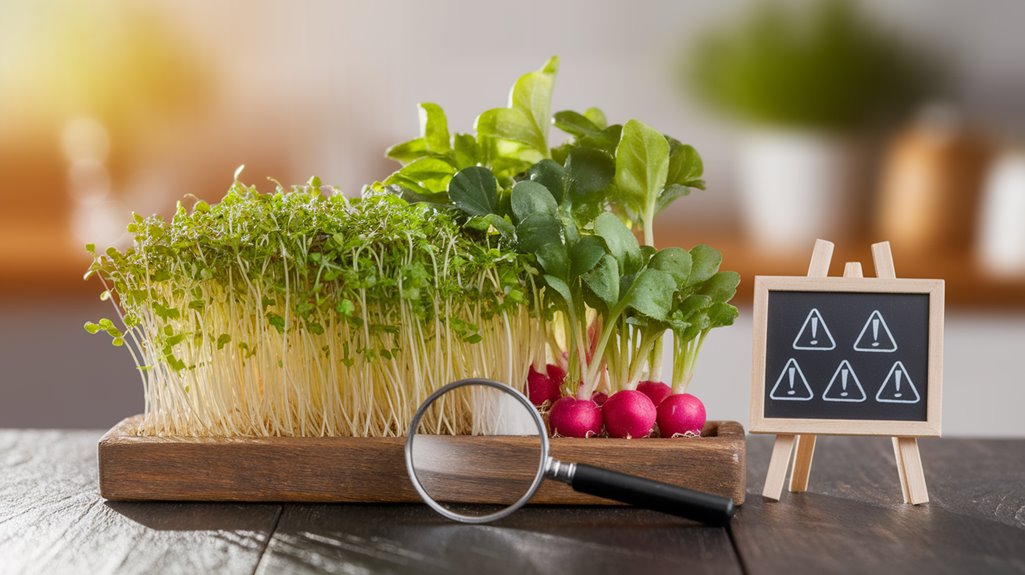
While sprouts offer numerous health benefits, it’s important to be aware of potential risks associated with their consumption. One major concern is the risk of foodborne illness, as sprouts can easily harbor harmful bacteria like E. coli and Salmonella.
According to the Centers for Disease Control and Prevention, sprouted seeds have been linked to multiple outbreaks. If you’re immunocompromised, pregnant, or elderly, it’s wise to exercise extra caution.
Additionally, the high levels of certain antinutrients, like phytic acid, can inhibit mineral absorption if consumed in excess. To minimize risks, I recommend thoroughly washing sprouts and purchasing them from reputable sources.
Heating sprouts can further reduce the chances of contamination, making them safer for consumption.
Frequently Asked Questions
Conclusion
Incorporating sprouts into your diet can significantly enhance your nutritional intake, offering a wealth of vitamins, minerals, and antioxidants. Their health benefits are backed by research, showing positive impacts on digestion and immune function. Growing your own sprouts is simple and rewarding, allowing you to experiment with various types. However, it’s crucial to be aware of potential risks. Overall, whether you enjoy them in salads or stir-fries, sprouts are a versatile and nutritious addition to any meal.

